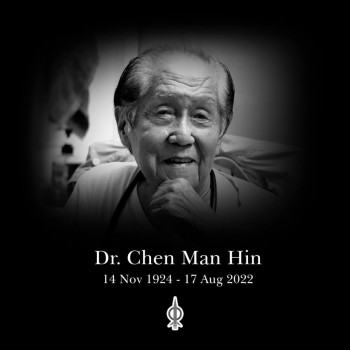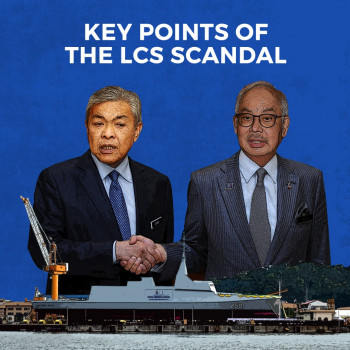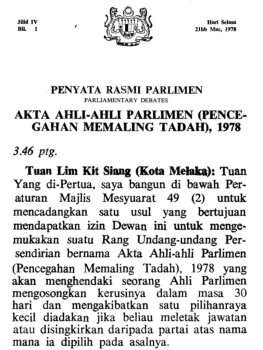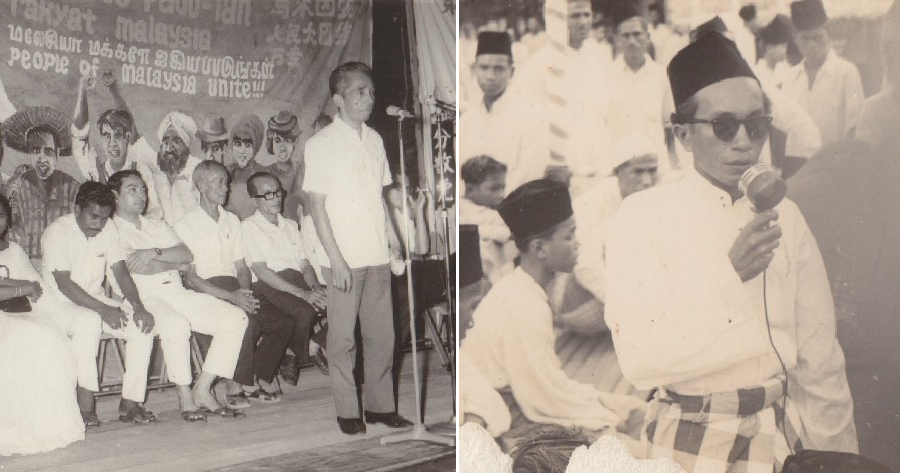
Most of you, especially the young generation probably never heard of the name Ibrahim bin Singgeh. Well, why would you when his name was never mentioned in any official history text books in our country?
This fact is really regrettable considering how big of a contribution the late Ibrahim Singgeh had in Malaysia’s struggle for independence against Colonial British.
In 1969, Ibrahim Singgeh became the first ever State Legislative Assembly Representative (ADUN) for DAP from the Malay community. He contested and won the seat of Tapah Road under the DAP logo with 3,319 votes compared to the ruling Perikatan’s 2,986 votes. The other candidate was from PAS which received 753 votes.
The majority may not seem much, but this was a monumental victory for DAP considering this was the first ever General Election the party contested since its official inception in 1966.
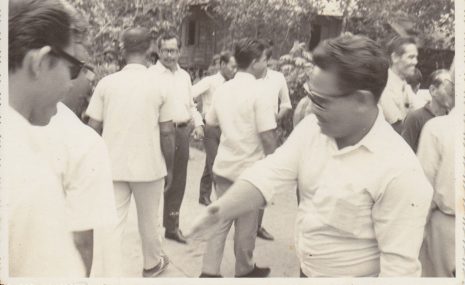
However, things changed rather quickly. 5 years after the 1969 election, Perikatan rebranded to become Barisan Nasional under Tun Abdul Razak by absorbing most of the major opposition parties. This move impacted Malaysia’s political status quo gravely, especially for the opposition parties that remained which was DAP and Parti Sosialis Rakyat Malaya (PSRM).
Rather expected given the circumstances, Malaysia’s opposition parties suffered huge losses during GE4 in 1974. This include Ibrahim Singgeh who lost both Parliamentary and DUN seats he contested, in Tanjung Malim and Chenderiang respectively.
DAP and the Malay community
Despite losing, GE4 held a significant history for DAP, especially in Perak whereby the party put out a majority Malay candidates. This integral part of DAP’s history is what the leaders and chauvinist supporters of UMNO and PAS are trying to erase. Historically and at the very essence of DAP lies the struggle for democracy, equal rights and opportunities amongst Malaysians that transcends race and religion.
In 1974, 14 out of 33 DAP electoral candidates for DUN Perak were Malay and Ibrahim Singgeh himself was DAP’s Menteri Besar candidate for Perak if they were to win GE4 in the state.
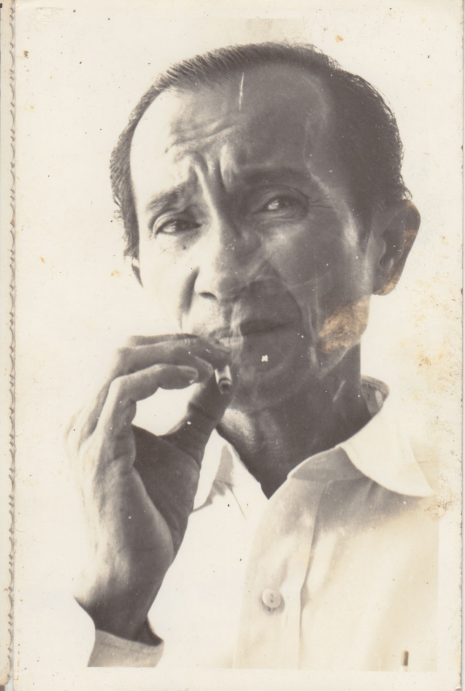
Besides Ibrahim, amongst the DAP figures from the Malay community who also contested GE4 include Daeng Ibrahim Othman, Fadzlan Yahya and Salleh Nakhoda Hitam. As far back as 1974, DAP has been a champion for women leaders which can be seen by the naming of Zaharah Ibrahim as the candidate for DUN Kenering against Tan Sri Ghazali Jawi. Ultimately however, Ghazali won and was elected the Menteri Besar of Perak for the second time in 1974.
Three years later however, Ghazali resigned as Menteri Besar and vacated the Kenering seat. In the ensuing 1977 By-election, Ibrahim contested for DAP for the seat but Ghazali’s son, Tajol Rosli which was the BN candidate won then in place of his father. Tajol Rosli went on to become the Menteri Besar of Perak from 1999 to 2008.
In 1978, Ibrahim contested in GE5 for the DUN Tapah seat but was again unsuccessful. He was 60 years old at that time. The last GE in which Ibrahim contested was in GE6 in 1982 for DUN Batang Padang which he ultimately lost. Afterwards, He remained active within DAP but didn’t contest in GE again, particularly due to his declining health.
His leadership and influence in Perak, even though never covered by the state-owneved media, made him a popular figure within DAP. This was what Lim Kit Siang said of Ibrahim on 21 July 1974, on the eve of GE4:
“DAP Central Executive Committee has decided to contest almost all of the seats in Perak, and if DAP were to form the State Government, Ibrahim bin Singgeh, as the Deputy Secretary-General and ADUN for Tapah Road will be made the Menteri Besar of Perak.”
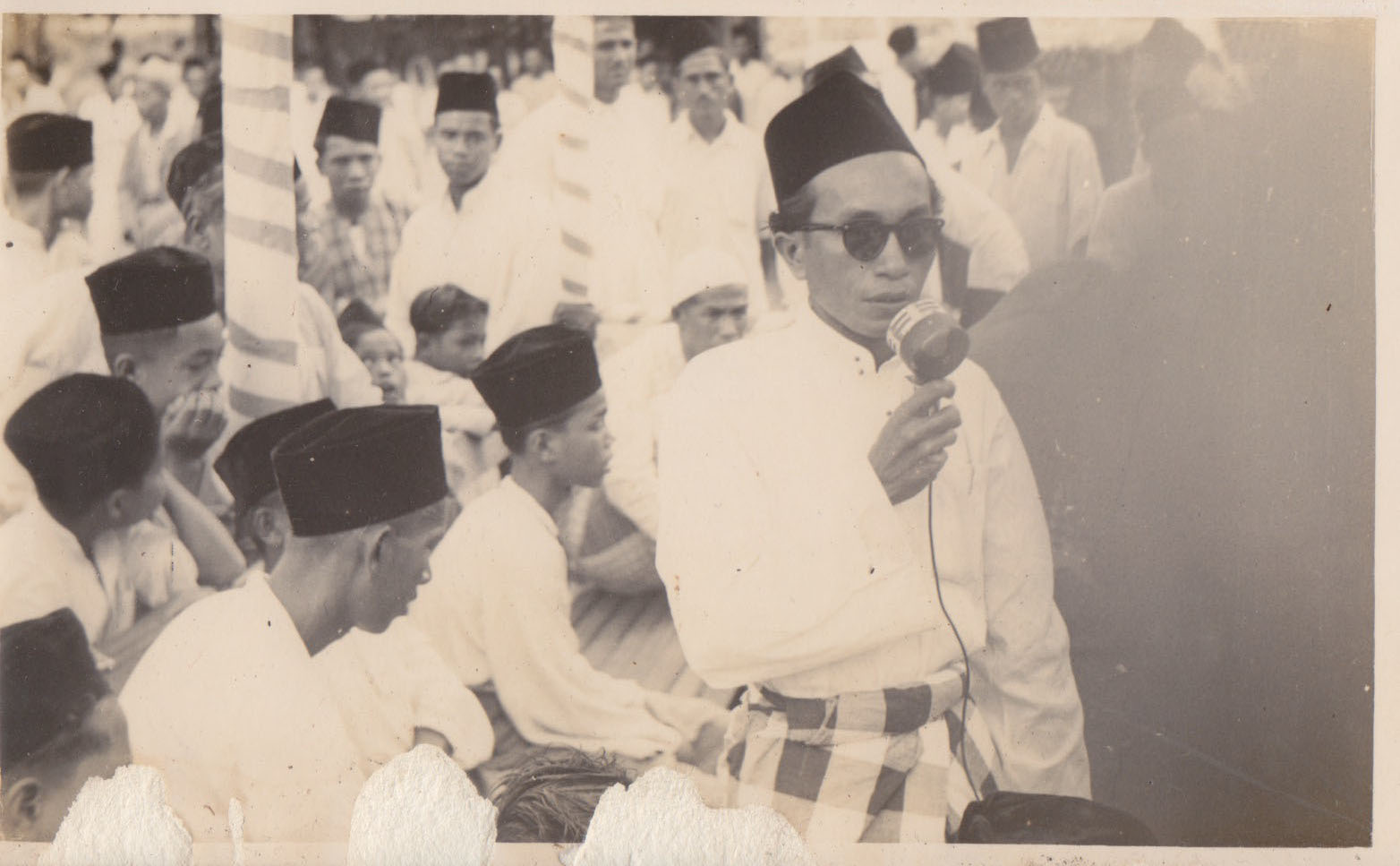
Looking back at the history of his struggles, it is apparent that Ibrahim Singgeh is synonymous with the Malay nationalism spirit in Malaya which was prominent in Perak. His name is in line with other Malay nationalists fighters and anti-colonialists that pushed for merdeka originating from Perak. These include Ahmad Boestamam, Dr Burhanuddin Al-Helmy, Abu Bakar Baqir, Abdullah CD, Rashid Maidin, Profesor Zulkifli Muhammad and many more.
Fighting spirit since adolescent
According to his children, Ibrahim was born in Kampung Banir, Tapah in 1918. After finishing school in Tapah, he went on to find a living in and around Perak. He briefly went to his father’s hometown in Sumatra shortly before World War 2. After the Japanese Occupation in 1942, Ibrahim returned to Perak and became active in anti-Japanese politics by joining the Malayan People’s Anti-Japanese Army (MPAJA).
The nationalist spirit within him burned brightly to the point that he joined Angkatan Pemuda Insaf (API) under the leadership of Ahmad Boestamam established in 1946. Their goal was to claim total independence from the Colonial British.
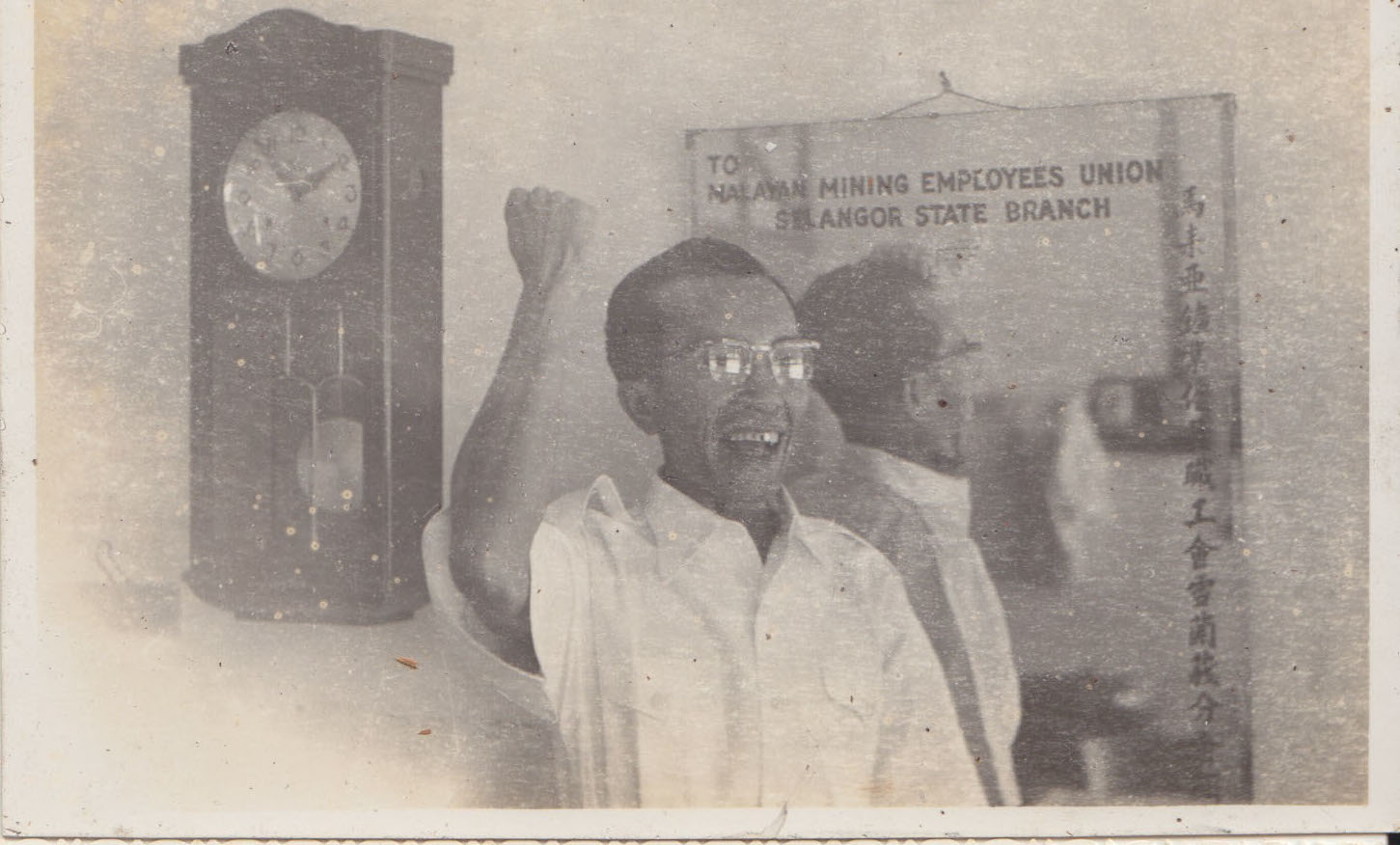
Ibrahim and API’s boldness didn’t sit well with the Colonial British and when the state of emergency was declared in 1948, he was detained without trial. For five long years Ibrahim was put behind bars. Upon his release, not only is Ibrahim undeterred by the Colonialists’ actions but his fighting spirit flames even brighter.
He subsequently chose a path that not many Malay freedom fighters took which is by being active in the labour movement. During that time, the Malay community was synonymous with the agricultural system that was feudal in nature compared to other races brought over by the British in the sectors of mining, farming and other blue collar industries.
From the Mining Labour Union in Perak, Ibrahim was elected to hold an information department position in the largest labour union in Malaya at the time, Pan-Malayan Federations of Trade Unions (PMFTU).
When Ahmad Boestamam – who was also detained by the British in 1948 – was freed from detention without trial after 7 years, he established the Parti Rakyat Malaya (PRM) in 1955. Ibrahim then joined forces with Boestamam again to continue the fight for merdeka alongside UMNO and Perikatan.
Ibrahim’s experience with PRM and his time in MPAJA during the Japanese occupation opened his eyes and mind for the need to be together with the Chinese and Indians of Malaya to claim independence. Together with PRM who then merged with the Labour party to form the post-Merdeka Socialist Front, Ibrahim fights under the platform of socialism, nationalism and race politics.
Joining DAP
In the mid 1960s, Ibrahim left PRM. This can be attributed to the internal problems that the party faced in which the young generation no longer believed in Boestamam as their leader. The latter went on to establish a new party in 1968.
For Ibrahim however, he never intended to retire from politics. Instead, his friends in the political scene invited him to join their respective parties. Ibrahim Singgeh’s choice was to join DAP.
In a 2017 interview with the late Ibrahim Singgeh’s two daughters, Rohani, 74 and Rusmawaty, 59, they shared stories of their father.
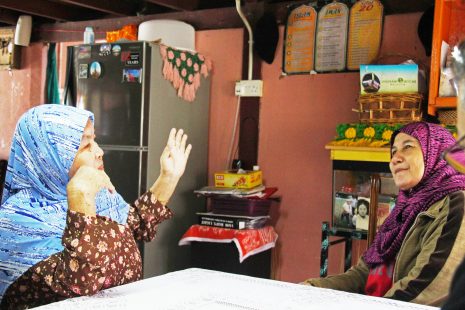
“When he was no longer active with PRM, ayah went back to the kampung. He became a rubber-tapper again. Despite their differences, he was still in good relations with Boestamam.”
Ibrahim was then approached by the Tapah councillor, Loh Jee Mee to join DAP and become the candidate for the party in GE3. He then declined the offer saying that he is nothing more than a rubber-tapper and wouldn’t have any money to submit his candidacy. Jee Mee then replied,
“If you are up for it, I will do my best to find funds for you to contest.”
Ibrahim then contested the Tapah Road DUN and won while Loh Jee Mee won the Batang Padang Parliamentary seat.
Becoming an elected representative
After becoming ADUN, many came to Ibrahim for help, including those who didn’t support him. Rohani who was in her 20s at the time spent a lot of time accompanying her father to various events and meetings, including candidates nomination day.
Rusmawaty remembered how her father was very close to the rakyat and is always willing to give the kampung people a helping hand. It was to the point that the daughters were quite annoyed because they can’t rest as family due to their house becoming the hotspot for the kampung people to meet their elected representative.
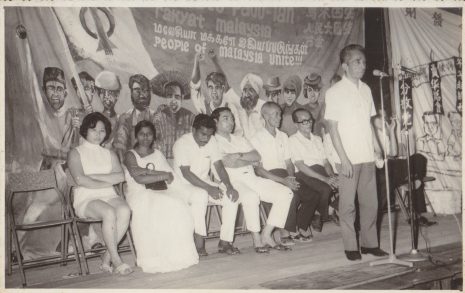
“Back then there were no public phones in the kampung. Ayah set up a phone in our house for the use of the kampung for important things such as when there were sick at the hospital or when there are deaths.”
She added that Ibrahim even said to the family that the telephone in their house was set up specially for the kampung people, even though he was the one paying the bills. Even non-DAP supporters were taken care of like they were part of his own family.
“That is why he never left behind any inheritance… We are his inheritance; his children.”
However, Ibrahim’s children never saw this as an issue as principles will always trump affluence in their eyes.
“When ayah won GE3 in 1969, a representative from UMNO came to our house at 2am to try and ‘buy’ him. They offered him RM50,000 and promised him the Exco of Perak position, with a house just for him.”
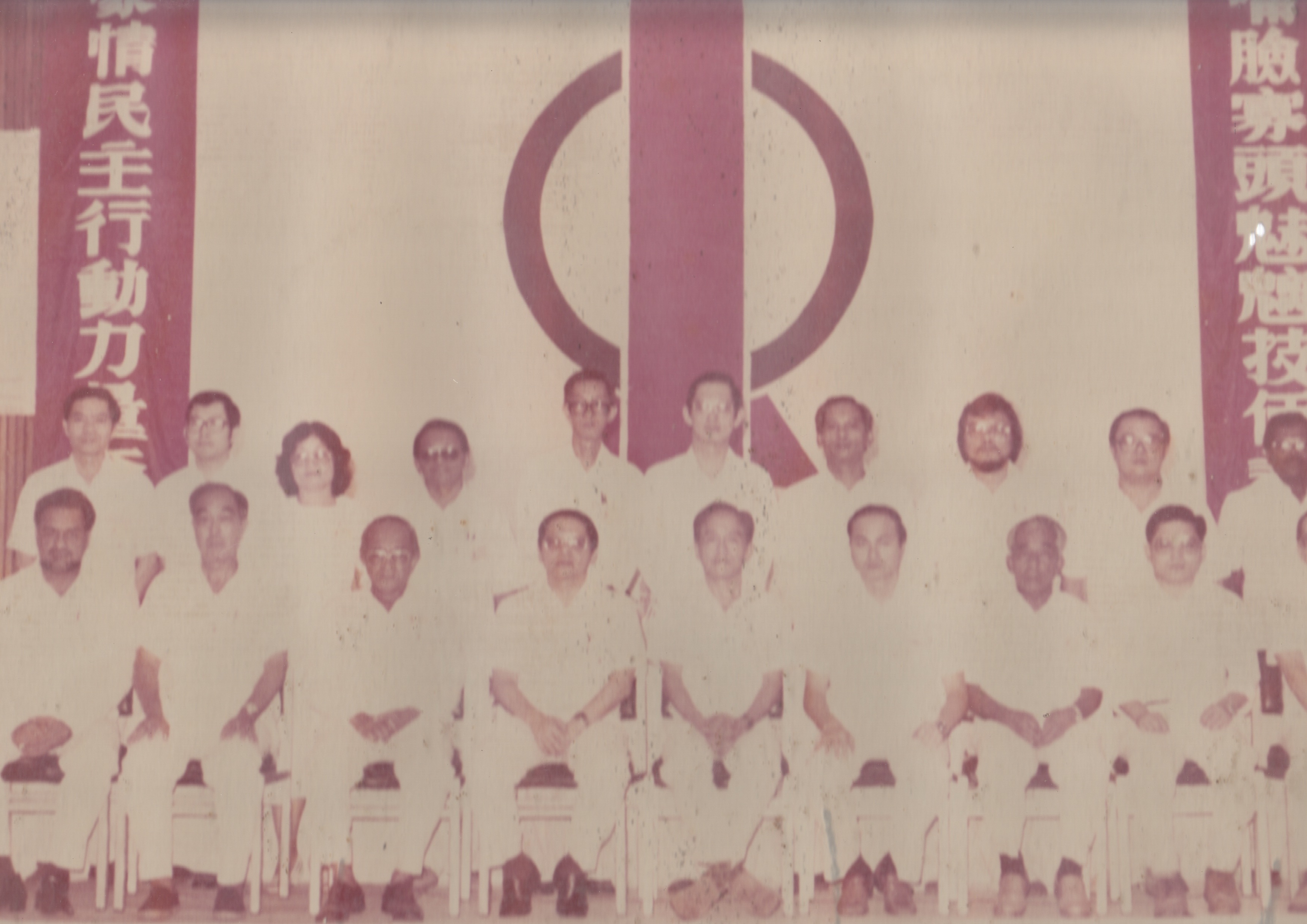
“But ayah respectfully declined and said that he is not like a frog to jump here and there. He stayed true to his principles until the end of his life.”
His daughters further shared how influential Ibrahim was amongst the people in Tapah and Tanjung Malim regardless of race. Even though he didn’t win any elections since 1974, his commitment to the community continued, including joining DAP lectures and meetings in Perak and at the national level.
For the rakyat
For Rohani, his father was a leader that was courageous and bold in speaking out the truth as it is. It is his nature to be truthful, responsible and trustworthy.
“If there was anyone in need, he will help. He is really the representative of the rakyat. If there were any surau without any electricity, he provided fuel for the generator.”
In fact, despite his old age and declining health during the 1990s, he still participated in DAP lectures to give speeches.
The fighting spirit of a Perak son
To quote Lim Kit Siang regarding Ibrahim Singgeh prior to GE4 in 1974:
“Ibrahim Singgeh is a humble individual with an enormous persistence. He was imprisoned by the Colonialist British for his fight for Malaya’s independence.”
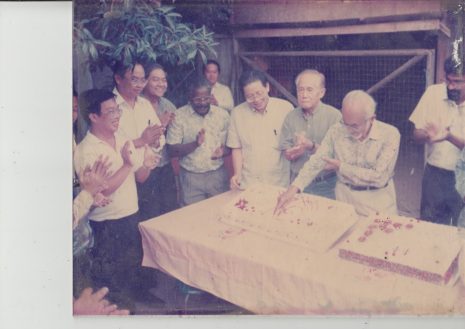
“For the past 5 years as the ADUN for Tapah Road, Ibrahim has proven himself as the hero and representative of all the Malaysian people. The Perak DAP Central Executive Committee will continue to be multiracial, just like how DAP Perak’s list of candidates has truly become so.”
Despite not being active with DAP after the 1990s, his relationship with the party’s leadership remained close. According to Rohani, when Ibrahim passed away, DAP leaders of past and present came in droves to pay their last respect to the influential leader.
The late Ibrahim Singgeh passed away on the evening of 31 May 2010 and was laid to rest at his hometown in Banir, Perak. His contribution to our country is second to none and his fighting spirit will forever live on in our memories.
[Read the original article by Wan Hamidi Hamid in Bahasa Malaysia here.]

